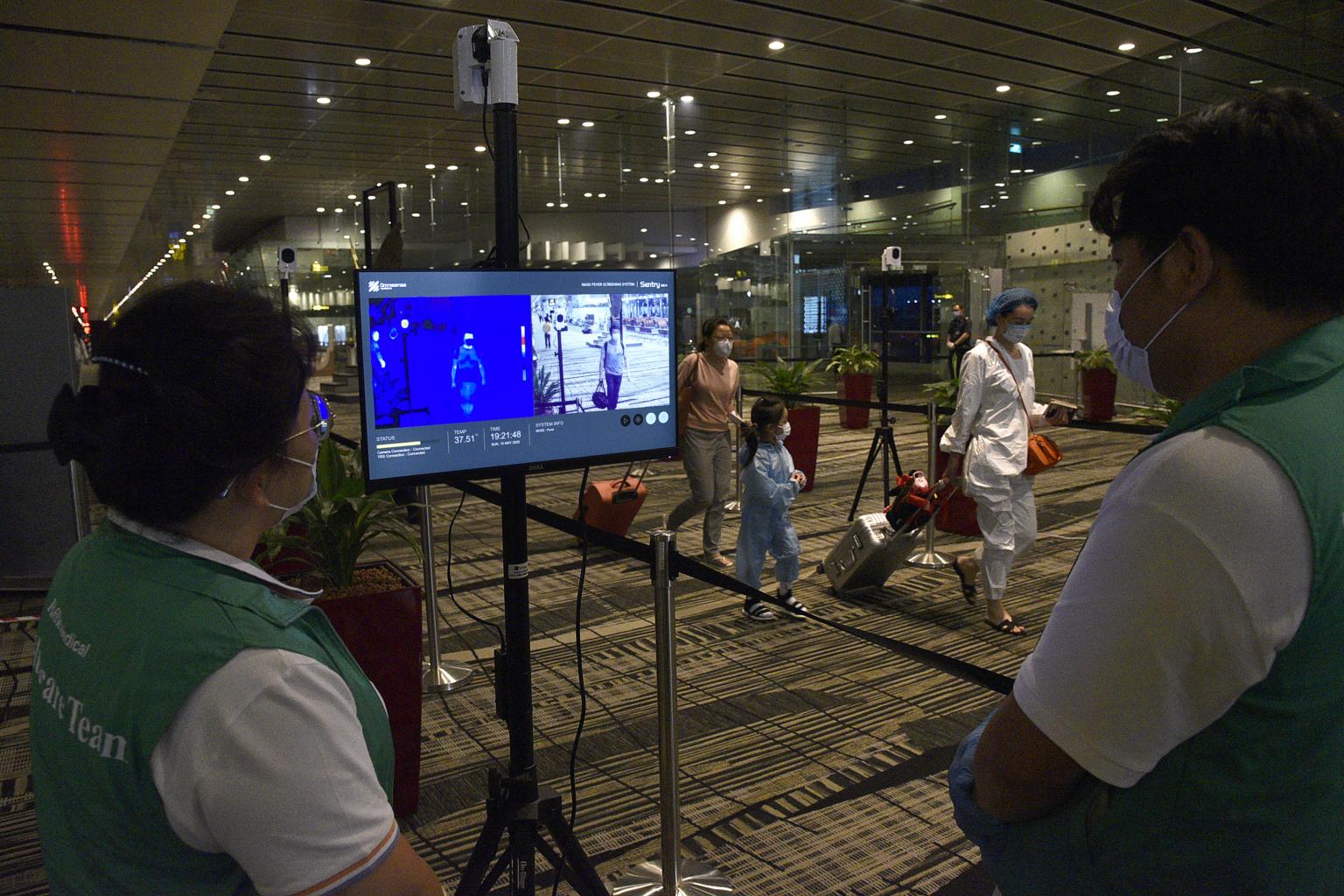Coronavirus: Regional green lanes will take more time than bilateral ones
Sign up now: Get ST's newsletters delivered to your inbox

Passengers arrive at Changi Airport on May 10, 2020.
PHOTO: ST FILE
An Asean travel green lane or a broader regional travel bubble is something the Covid-19 multi-ministry task force aspires towards, although it will not be achieved in the near term.
This is because the infection situation in Asean varies from country to country, said National Development Minister Lawrence Wong during a virtual press conference yesterday.
Instead, discussions on bilateral green lanes, which will progress faster and be easier to set up, are currently ongoing, he said.
"For example, we have been discussing with Malaysia and we are making progress in our discussions with Malaysia on a green lane arrangement... And we are continuing to discuss with other countries in the region too," Mr Wong said.
These discussions are likely to conclude at different times, as some can be done faster, while others may take more time due to different conditions in each country.
"But over a period of time, I do think we should aspire towards such an arrangement, be it at the Asean level or even at a broader regional level, so that we can facilitate business travel in the first instance, essential travel as well, across the region in a safe manner.
"It's a long-term goal which we would aspire towards, and we will continue to work with all the countries in the region towards that goal," he said.
Bilateral arrangements are also easier to put into practice, and once the kinks have been ironed out, the task force would have some standard templates on green lanes which other countries can then join, Health Minister Gan Kim Yong said yesterday.
"Then (when) you have enough countries that are joining in to this common template, perhaps it can then be expanded into a regional kind of template. And I think it will take some time."
But Singapore should not hold back from bilateral arrangements, Mr Gan added. Instead of just waiting for the regional agreement, both discussions can progress at the same time, although the bilateral ones are likely to progress faster and more easily.
On June 27, the Ministry of Foreign Affairs announced that a green lane and periodic commuting arrangement would be established between Singapore and Malaysia to meet the needs of different groups of cross-border travellers, following a telephone call between the prime ministers of both countries.


